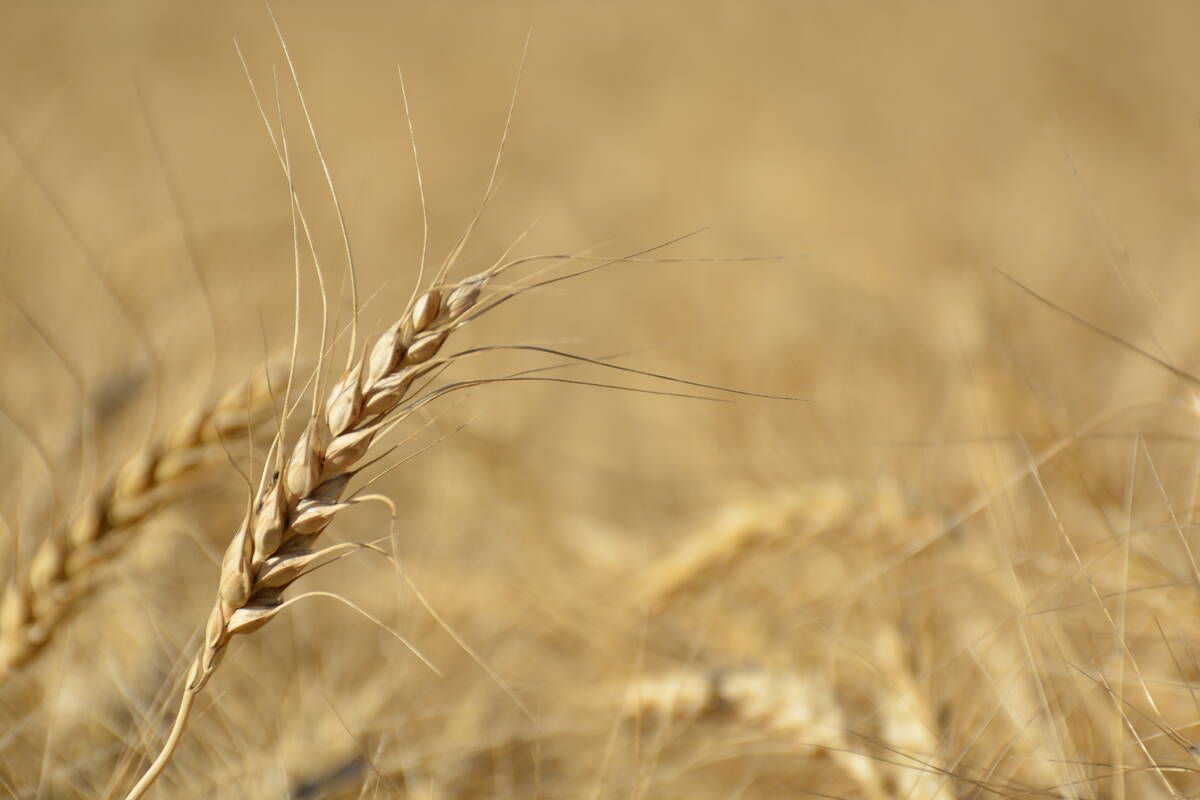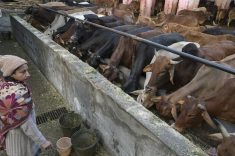An increase in Canadian beef imports this year startled cattle producers like Pat Hay, who wondered why more imports are needed at a time when demand for Canadian cattle has sagged because of BSE.
During the first five months of this year, beef imports were up more than 10,000 tonnes compared to the same period a year earlier. Meanwhile, Canadian cattle prices are depressed because of lost foreign markets for live animals and beef.
“In light of what’s going on, why would you increase your imports?” asked Hay of Pipestone, Man.
Read Also

USDA’s August corn yield estimates are bearish
The yield estimates for wheat and soybeans were neutral to bullish, but these were largely a sideshow when compared with corn.
“Those numbers kind of jumped out at me when I was looking at the reports.”
According to John Ross, assistant director of Agriculture Canada’s red meat section, Canada imported 40,471 tonnes of beef from Jan. 1 to May 21 of this year.
Beef imports during the same period last year were 29,369 tonnes. But the amount is still well down from two years ago, when the total at the end of May was 105,764 tonnes.
Ross said most of this year’s increase was from the United States, although there was also an increase from New Zealand.
Putting the increase into perspective, Ross noted that Canada halted beef imports from the U.S. in late 2003 following the discovery of a BSE infected cow in Washington state.
That interruption carried over into the early part of 2004 while an investigation of the BSE case was completed.
Without a similar kind of interruption this year, the volume of U.S. beef imported is up.
“The United States is back in the marketplace,” Ross said. “They weren’t with us in the early part of 2004. They’d be the big supplier, the big difference.”
Ross said beef imports from New Zealand had reached 14,700 tonnes as of May 21, compared to 11,700 tonnes during the same period in 2004.
Meanwhile, imports of Australian beef are down about 10 percent this year, because that country has a more lucrative market in Asia for its meat products.
New Zealand competes in the Canadian market by supplying beef to niches that are not filled by the Canadian cattle industry, he said.
“New Zealand has a product that is exceptionally lean from bull calves. They’re very, very, very lean.
“There’s a uniqueness in the New Zealand product that attracts some processors in Canada. They have a customer base for it and that’s what the customer expects.”
Ross said roast beef for delicatessens is one such market.
Hay did his own checking after learning that Canadian beef imports had risen. He was told by a provincial agricultural representative that the imports should balance out and stay similar to last year as the year progresses.
In light of that, he was less alarmed by the numbers.
“As long as our foreign markets continue to open it’s not a bad thing, as long as we don’t open up for more imports quicker than what our exports are doing, which almost appears to be what’s in those reports.”
At the same time he questions the need to import beef from countries like New Zealand and Uruguay. Uruguay competes for market in Canada with what Ross described as a competitively priced product.
“At least the Americans are taking our meat,” said Hay. “I don’t think New Zealand is taking too much and the same with South America.
“I don’t mind that if we have to accept something from another country in order to sell something to them, but when the cattle situation is the way it is, I think some guidelines need to be drawn up.
“If we’re importing meat from New Zealand just for the sake of them buying tractors or combines, with the way things are right now, some of these tradeoffs need to be looked at more closely.”
Beef is imported from Australia, New Zealand and Uruguay under a tariff rate quota system. Each of those countries has a share of the 76,409 tonnes of beef that can be exported to Canada with no tariffs applied. The annual allocation is 35,000 tonnes for Australia, 29,600 for New Zealand and 11,809 for Uruguay.
A tariff of 26.5 percent is applied on beef imports exceeding the allocations.
Ross said Canada has no trade obligations to import beef from those three countries.
“There’s nothing in the agreement that says Canada will buy 76,409 tonnes, so we have no obligation to buy. In fact, if you look at last year, we imported considerably less than that.”
















